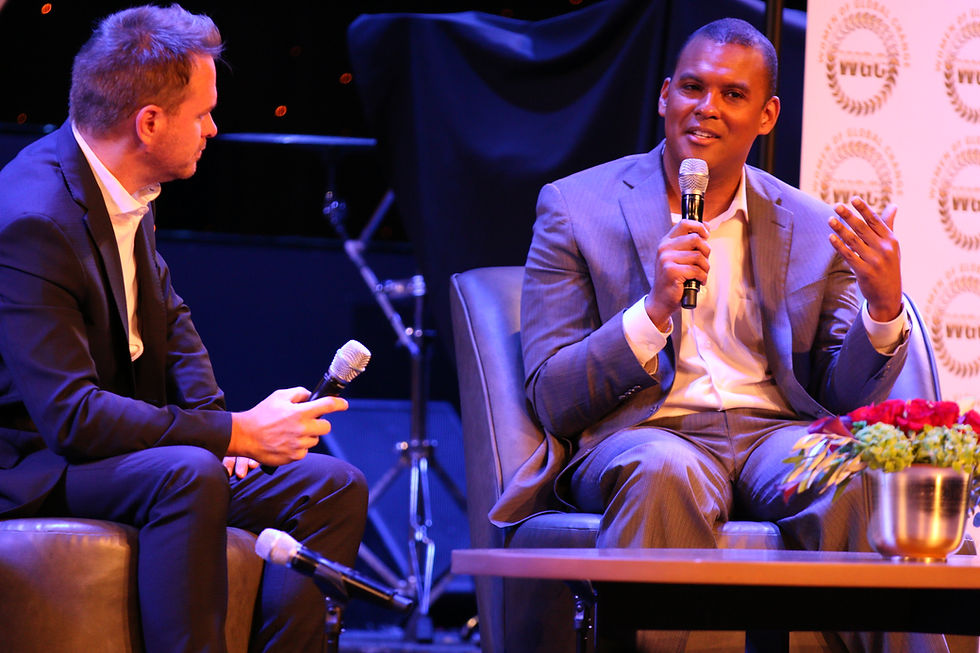How Ego Tanks Branding and Marketing and Jeopardizes Companies
- The Ascendant Group - CEO Branding

- Oct 26, 2020
- 3 min read
Updated: Nov 23, 2020

Have you ever turned to YouTube for a Do-It-Yourself home improvement project that will only take a few hours? Imagine being in the middle of that project when a friend stops by and offers some friendly advice. You assure them you know exactly what you’re doing, the YouTube video is step-by-step, and you’ll be finished in no time. Suddenly, you realize your friend was right and now you need a professional two hours ago on a Sunday afternoon. Don’t let ego, arrogance, and stubbornness derail your rapid growing business into a bankrupt disaster.
Here are three mistakes that stem from ego that can be avoided or addressed to keep your business in business:
1. Telling the Customer What They Want
Before buying a product, many consumers will consult sites like Amazon, Google, or Yelp to read reviews and determine whether or not the product suits their needs and is worth the cost. Unlike years ago, when people relied on friends, families, and co-workers to recommend a product, customers can now immediately research a product from their smartphone. It is more important than ever to listen to customers wants and needs and to design a product that meets those requirements. Designing and marketing a product based on what you believe the customer needs may work in the short term, with everyone rushing to get the latest new gadget, but this strategy will backfire the moment one person realizes that the product is all flashy lights and neither meets their wants nor needs. Within mere minutes, a review will be posted for the entire world to view and share until the product’s, and sometimes business’s, reputation is ruined. Use social media and review sites to listen to the customers; they will tell you the next biggest product, you just need to create it.
2. Trying to be a Master of All Trades
Your ego may tell you otherwise, but you don’t have to know everything. In fact, no human can possibly know everything there is to know even if they spend a lifetime studying one subject. The best leaders admit their faults, demonstrate how to repair and learn from mistakes, listen to their employees, and delegate tasks to those who are more qualified to get the job done right. Why would you hire an employee you didn’t think was qualified to work for your company in a particular position? Unfortunately, there are many leaders who do the opposite, creating a toxic culture built around fear and negative feedback. When a leader takes the time to listen to employees, they will gain valuable insight and ideas that will propel success. By creating a culture focused on learning from mistakes, leaders are cultivating loyalty and trust from employees that will lead to far greater innovation.
3. Ignoring Market Trends
In the age of technology, advancements are being created faster than ever. Apple, for example, comes out with a new generation of products every single year, constantly challenging the imagination as to what new feature could possibly be next. Back in the early 2000s, teachers used to say, “You won’t have a calculator in your backpocket!” Now we have a calculator along with cellphone cameras that, with the right equipment, compete with professional DSLRs. If you listen carefully to people talking, what they write on social media, and even things found in futuristic movies, it’s phrases like these that will tell you what product the world will need next. When a ship is sinking, it’s better to jump on a lifeboat and keep sailing rather than stubbornly sink to the bottom of the ocean.
It is impractical, implausible, and egotistical to attempt to keep up with each and every new product trend or fad that pops up. Rather, a leader must listen to consumers and employees, conduct valid research, and decide which market trends will keep their company current and customers loyal.







